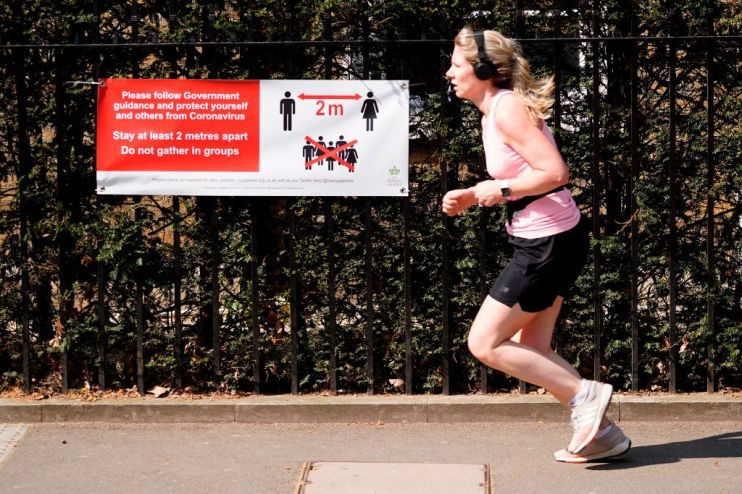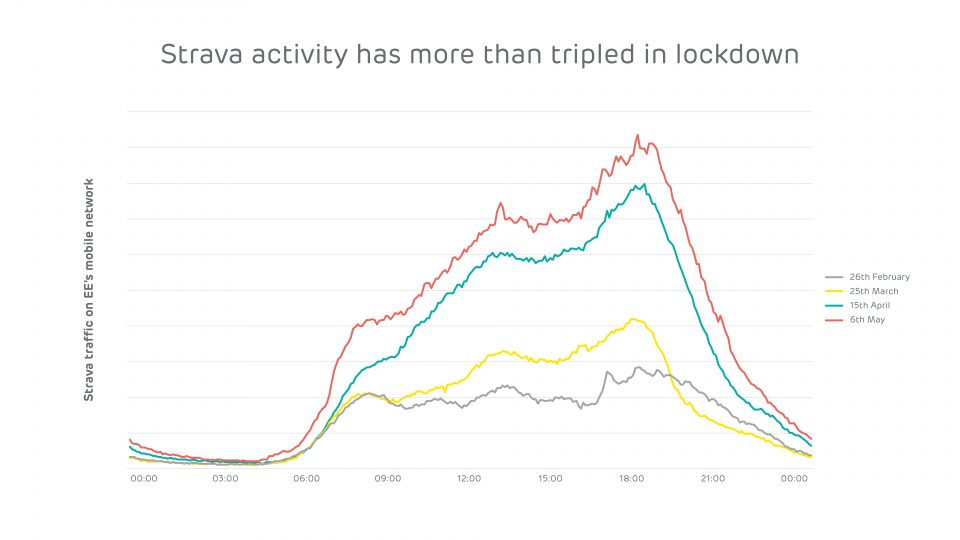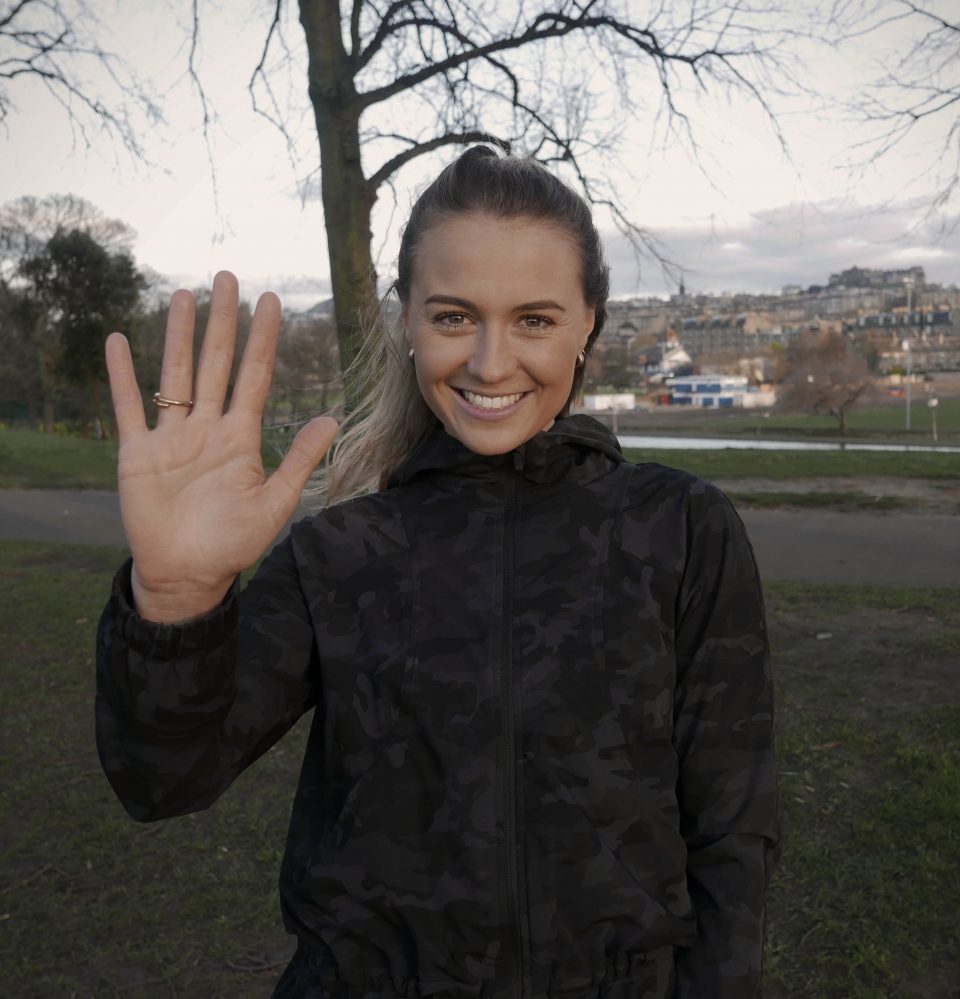The business of running: Trainer sales and fitness apps boom in lockdown

Running in the UK has been booming for years, with Parkrun events attracting hundreds of thousands each Saturday and amateur athletes comparing their fastest times on new tracking apps.
That trend has only accelerated under the coronavirus lockdown, albeit in a more solitary way. As normal life has ground to a halt, huge numbers of Brits have used their daily allowance of exercise to hit the streets and local trails, and discovered the virtues of a cheap and convenient form of exercise.
“It’s a great way to stay healthy but also a good way to stop thinking about everything that’s going on,” says Olivia Strong, founder of Run for Heroes, which has raised more than £5m for the NHS’s coronavirus effort.
The remarkable rise of running during lockdown is shown in all sorts of data. Britain’s biggest sports retailer has reported a surge in trainer sales. Statistics from GPS wearables firm Garmin show that outdoor running has increased markedly across Europe.
It has been bittersweet for many in the running community, however. Huge events like the London Marathon have been cancelled, even as running has taken off.
Trainer sales soar as Britain takes to running
A striking rise in kit sales shows how popular running has become. Retailer Sports Direct told City A.M. it sold 218 per cent more pairs of running trainers online during the lockdown than in the same period a year earlier.
Britons also bought 243 per cent more running clothing than normal. And they splashed out 268 per cent more on running accessories and equipment online at the retailer.
However, the picture has been less bright for smaller running businesses. Lockdown has hit small retailers. And although they stand to benefit from greater interest in the sport, their businesses could be threatened by social distancing.
The UK’s runners have also flocked to activity tracking app Strava, which has seen a boom in usage during lockdown. Part of its appeal is a social element – and its competitive edge. Runners are able to see each others’ activities and give them ‘kudos’ (the equivalent of a ‘like’).

Figures from network EE shows that Strava has seen both user count and data usage more than triple compared to before the lockdown.
Data from Garmin, which produces wearable products that track runners and cyclists using GPS, also shows that people in the UK are running more than usual. Garmin had a good start to the year even as the economy crashed. Revenue from its outdoor segment grew 14 per cent, with significant contributions from adventure watches.
“The UK’s less-strict rules [compared to much of Europe] has led to more people running outside but staying much closer to home than before,” says Jon Oliver, managing director of Garmin UK.
Running challenges raise millions for charity
So what’s driving more and more people to lace up their trainers and take to the streets?
The UK’s lockdown rules are no doubt a key part of the story. Before they were relaxed in May, the government allowed people one form of exercise a day. This encouraged Britons to make the most of it, leading them to the simplest workout there is. The recent beautiful weather cannot have hurt either.
Running is also good for people’s mental health during stressful periods, says Simon Klima, Strava’s director of international marketing. “The benefits of running are really acutely aligned with some of the stresses of life right now,” he said. “To release anxiety and help gain a perspective and cope with cabin fever, running’s a great antidote for that.”
“Especially at this moment in time when perhaps people are isolated and crave that interaction and support, I think they can find that in the community on Strava.”

Another driver of the lockdown running boom has been challenges that raise money for Covid charities. The most notable of these is Run for Heroes. It went viral on Instagram by getting friends to challenge each other to run five kilometres, donate five pounds and nominate five friends to do the same.
Founder Olivia Strong initially wanted to raise £5,000 for NHS Charities Together using the “run five, donate five, nominate five” slogan. “I noticed just how many people are out running,” she says, “and that’s what inspired me.”
Run for Heroes sprinted miles past its target, however, and has raised more than £5.5m to date. Strong says the challenge has inspired many people who had never run before. All the usual social media pictures of meals out “have now been changed to Strava maps on how far you’ve run or how quickly you’ve done a 5k”, she says.
Marathons cancelled but optimism remains
But running is not always a solitary pursuit. Much of its social side has been lost during the coronavirus lockdown. In a hit to charities, mass events like the London Marathon, which raised £66.4m last year, have been cancelled.
For some runners, the biggest loss is their weekly Parkrun – 5km runs that happen across the country each Saturday morning. Millions have finished a Parkrun since it started in 2004, with hundreds of thousands joining in each week before coronavirus struck.
“It’s a real shame,” says Klima. “I think it’s hard for the industry as a whole. There’s a lot of people that work within the events industry, that has really suffered as a result of this.”
Although the short-term future for large running events does not look bright, organisers hope things can return to normal. In one of his regular updates, Parkrun boss Tom Williams said: “We remain confident that, in time, all Parkrun events will return.”
But both Klima and Strong say that in the meantime it is great to see more people out running. They are also both hopeful that the trend will continue.
Strong says: “I think that people will realise the effects it can have on not just your mental health but on your immune system and keeping you healthy. And I think for those reasons just to get outside for half an hour can really help.”